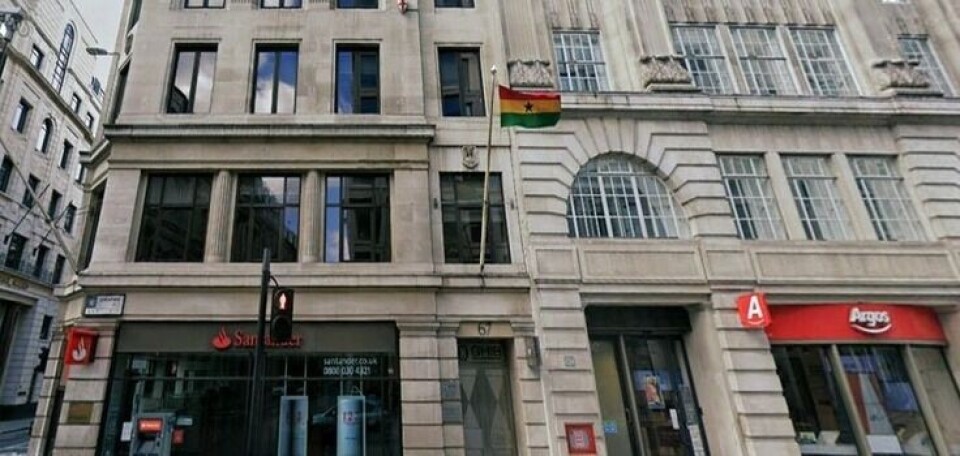Copyright : Re-publication of this article is authorised only in the following circumstances; the writer and Africa Legal are both recognised as the author and the website address www.africa-legal.com and original article link are back linked. Re-publication without both must be preauthorised by contacting editor@africa-legal.com
Ghana’s UK assets under threat over unpaid debt

Ghana International Bank’s office building in the UK, along with other Ghana government-owned properties, is at risk of being auctioned off to cover a $140-million judgement debt granted to oil trading company Trafigura, writes Marian Ansah.
Trafigura holds a majority stake in the Ghana Power Generating Company (GPGC), and secured a $140-million judgement in January 2021 from an arbitration tribunal in London. The tribunal ruled that Ghana wrongfully terminated a contract relating to the establishment and operation of two power plants.
After Ghana’s initial attempts to challenge the award enforcement and set the order aside were dismissed, the situation escalated as Trafigura moved to obtain charging orders against the London properties in May 2022.
Ghana tried to cancel the order on 23 June 2023, saying Trafigura should have used diplomatic channels to serve them, but on 2 August 2023 Trafigura asked to take control of Ghana’s interests in one of the London properties.
“As far as I am aware, it’s only Regina House which is used for commercial purposes because it’s being rented by the Ghana International Bank, two other banks, and another commercial entity. That is the one that has been attached. All other properties are diplomatic properties and covered by immunity,” commented Ghana’s High Commissioner to the United Kingdom, Papa Owusu-Ankomah.
He attributes the payment default to the government’s financial constraints, which have led to a deviation from the agreed upon terms with the judgement creditor.
The government ended the agreement in 2017 on the Attorney General’s recommendation, citing the deal’s high tariffs as the reason. It also listed other illegalities, such as GPGC’s inability to engage in a power purchase agreement (PPA), its failure to secure building and siting permissions, its installation of an old plant against the policy, and its failure to meet certain other requirements.
The situation has caused concern among Ghanaians, with some calling for an investigation into the actions of the governing New Patriotic Party (NPP) decision-makers, including former Energy Minister Boakye Agyarko.
Dr Kwabena Donkor, a former minister of power during the John Mahama administration, claimed that the government’s decision to end the GPGC contract and incur a $140-million judgement debt “made no sense commercially and legally”.
In a public statement on 26 October, Agyarko clarified the circumstances surrounding the decision to review the PPAs, emphasising that, upon assuming office, the newly elected NPP government deemed it necessary to take all required actions to control the costs of power generation and distribution in Ghana.
According to Agyarko, the decision to review the implementation of the numerous PPAs was to mitigate anticipated losses.
“It became necessary to review the implementation of the many power purchase agreements because, should all of them be implemented as originally scheduled, it would result in the production of excess energy with its attendant cost, which would worsen the financial situation of the power sector. The review was therefore to help cut back on losses that would be incurred,” he explained.
To join Africa Legal's mailing list please click here
